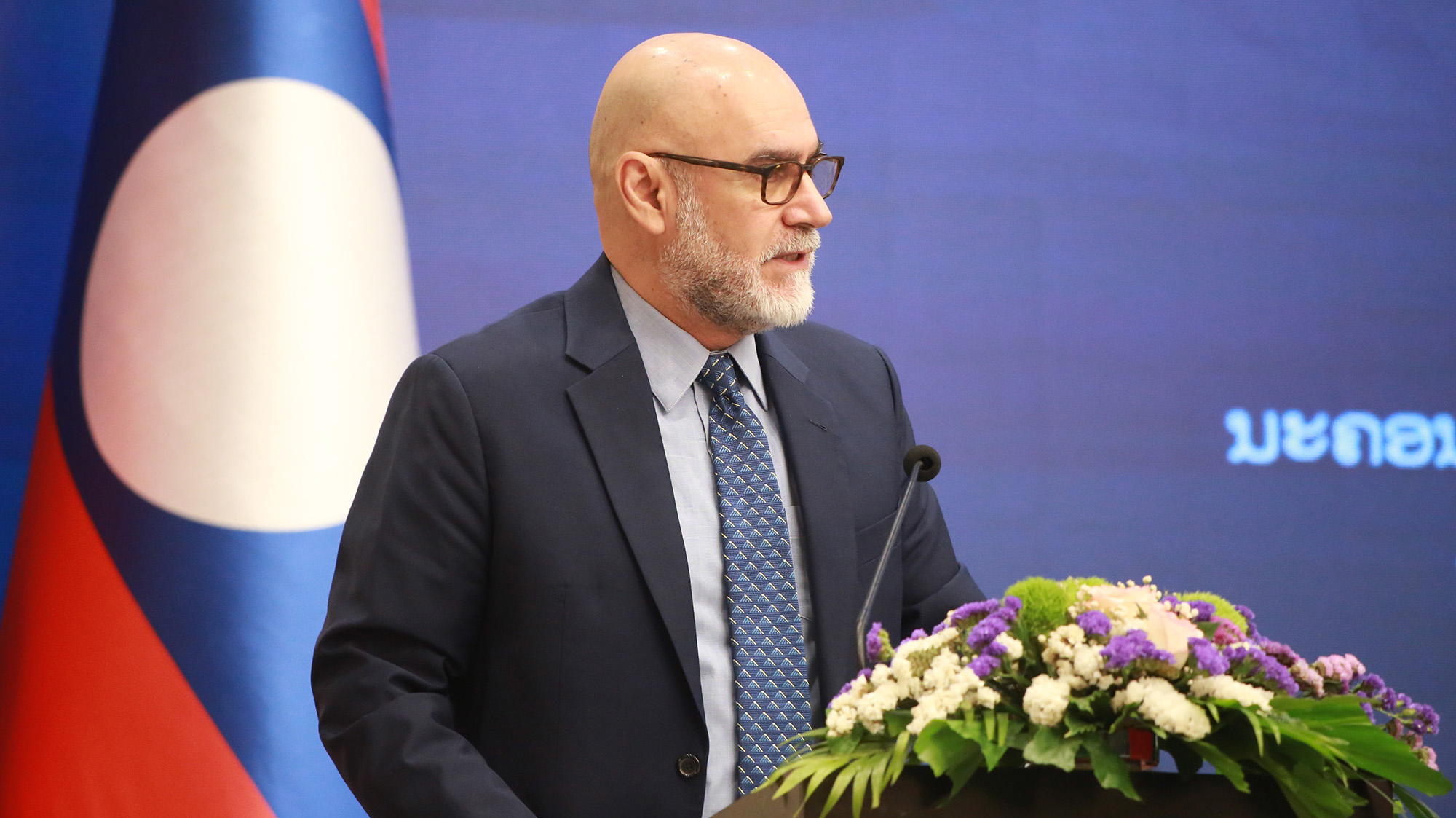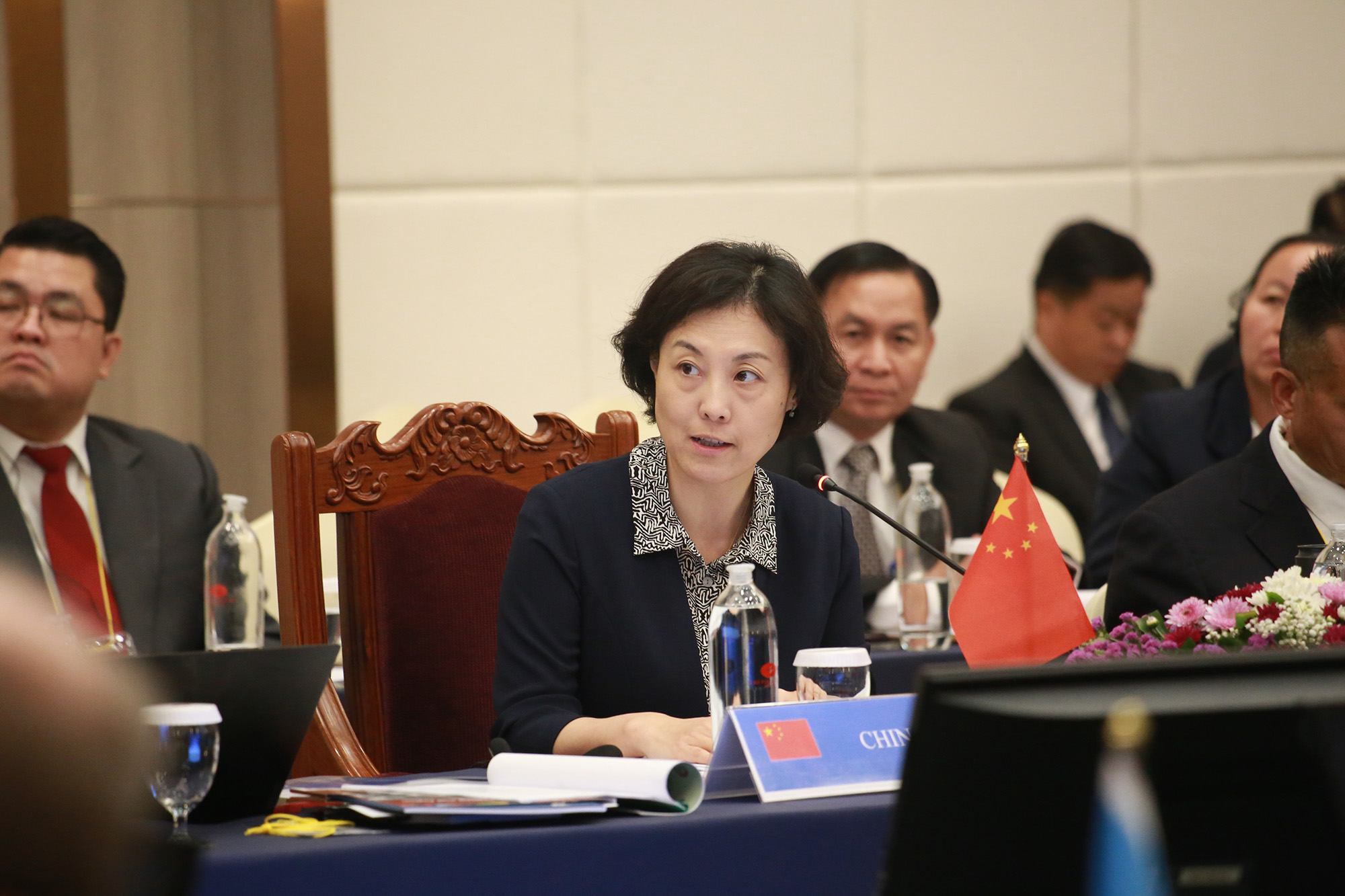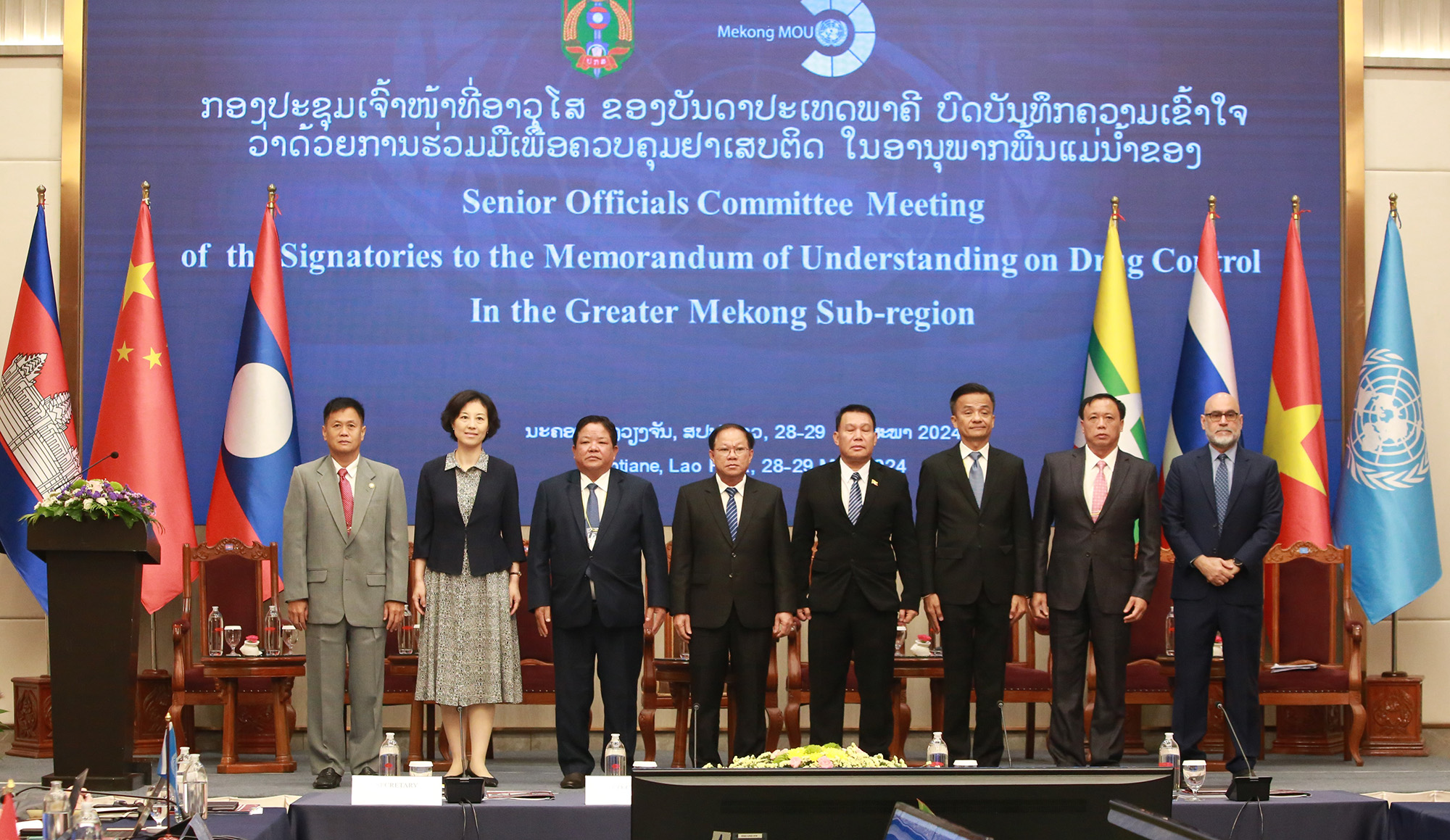
Vientiane (Lao PDR), 28 June 2024 - In a decisive move to strengthen regional cooperation against drug use, production, and trafficking, senior officials from the Mekong met in Vientiane last month to address the pressing issue of illicit drug trade in the region. The Senior Officials Committee Meeting of the Signatories of the Memorandum of Understanding on Drug Control in the Greater Mekong Subregion, the Mekong MOU, brought together senior officials from Cambodia, China, Laos, Myanmar, Thailand, Viet Nam, and UNODC. It was chaired by the Lao National Commission for Drug Control and Supervision in collaboration with UNODC.

“The global pandemic has had a significant impact on the regional economy and our livelihood, yet it has not impeded the production and trafficking of illicit substances,” said Masood Karimipour, UNODC Regional Representative for Southeast Asia and the Pacific, in his opening remarks. “The drug market continues to expand in complexity and reaches across East and Southeast Asia, with the Mekong region at the center of production. Organized crime groups have adapted and found alternative methods and routes for trafficking, resulting in the emergence of patterns of production and trafficking that bear resemblance to those observed in 2019.”
In its role as the Secretariat to the Mekong MOU, UNODC supports the MOU mechanism and all member countries by providing technical assistance, facilitating activities agreed among the Mekong countries through its rolling Subregional Action Plan, strengthening research on cross-cutting issues, as well as supporting the improvement of drug control policies and laws in accordance with national conditions to jointly address new challenges in the drug control field.
“Over the past 31 years, despite challenges such as fluctuating funding and evolving drug scenarios, the signatories have demonstrated remarkable cooperation, achieving significant progress in intelligence exchange, joint investigations, drug treatment and rehabilitation, alternative development, and capacity building,” said Police Major General Khamking Puilamanyvong, Vice Minister of Public Security in Lao PDR.

Representatives offered briefings on the latest regional drug situation. The meeting also featured the launch of the 2024 East and Southeast Asia Synthetic Drug Report, which contains an evaluation of the current landscape of the drug market, sharing progress made on the latest revision of the Subregional Action Plan at the national and regional levels, and strategizing on effective measures to combat drug trafficking.
The participants emphasized the importance of enhancing cooperation in information exchange, joint operations, and capacity building. They also discussed emerging threats, including the need to address the root cause of the drug problems and the diversion of non-controlled precursor chemicals. This was later reflected on the establishment of the three working groups to address the synthetic drug problem in the Mekong region, supported by China, which will deepen the working-level engagement on three areas: prevention education, chemical control, and drug analysis.
To facilitate effective communication and coordination among the Border Liaison Office network in the Mekong, the UNODC team also briefed the senior officials on the recently launched Operation Mekong Borders and its work plan, marking the beginning of a coordinated effort to secure the border areas in the Mekong from illicit drug crimes.

In parallel the meeting, six governments launched the Safe Mekong Joint Operation 2024 in Yunnan, China, an initiative that symbolizes the commitment of the Mekong countries to collaborate more closely in the fight against drug trafficking, in particular to streamline law enforcement communication and coordinate resources to form a regional synergy on combating drug crimes.
“The threats from drug production and trafficking have intensified, posing significant risks to the security development and well-being of societies in the region,” Karimipour said. “The urgency for swift and coordinated action has never been clearer. It is imperative that the response be decisive and timely to meet these challenges.”
Click here to read more on the Mekong MOU on drug control.